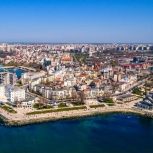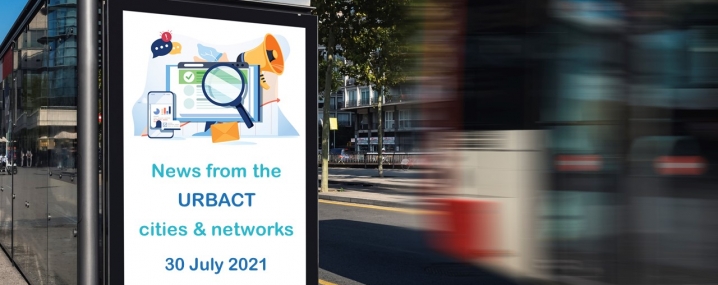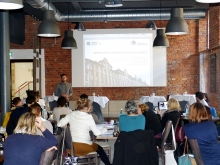
Constanta
Social challenges
As a social challenge Constanta defines the negative ratio between the active and inactive population. One of the reasons for this situation is that there are many pensioners from the military services who had a chance to go on early retirement and also the port activities allow people to retire earlier than the average employee. In addition, there is a strong migration tendency towards Western Europe and rural areas that led to a decrease in - economically active - population. The insufficient equipment for police and other bodies to maintain public order is another important social challenge.
Economic challenges
A major potential for the development of Constanta is the tourism sector. The possibilities to develop this sector are currently limited as a major part of Constanta’s port is still industrial. It will be given to the city in the near future so that then a large marina can be developed as another major attraction for Constanta as a tourist destination.
A further obstacle towards successful economic development on the peninsula is the very bad physical condition of buildings, road and public space that requires massive investment.
Environmental challenges
The increasing of car traffic, especially in the summer season, is one of the most important environmental challenges in Constanta. The City of Constanta has developed a Masterplan for the peninsula that foresees the creation of a pedestrian zone on most parts of the area, but this
will certainly not be realised with a short-term perspective. Further relief from traffic congestion is to be achieved with the construction of a new ringroad and with the planned coastal road from the Mamaia beach resort to the future marina of Constanta.
Physical challenges
The bad physical state of archaeological monuments and architecturally and historically important buildings describes the main physical challenges of the city. In addition, the urban infrastructure has severe deficiencies in the peripheral areas [lack of sewage, water and heating networks, lack of adequate access ways]. And the city is also confronted with the problem of obsolete homes - low standard housing with a severe lack of maintenance.
Important challenges are furthermore the insufficient availability of affordable housing for groups with special needs [Roma, young people, persons with low income and families with many children].
Governance
There is a clear a lack of civil society involvement at socio-political life of the city. Even though there is a slight tendency for people to get more involved, the history of the former regime stilll shows its consequences with a reluctance of citizens to get involved in public life and participation processes.
By law, the city is obliged to organise public debates for certain activities and topics. The experience in Constanta with such legally binding participation procedures shows that the people’s participation is depending on the topics. In most cases, citizens are only prepared to participate in cases when there is a risk that something is taken away from them.
SOME RELATED NETWORKS
URBAMECO
ALT/BAU
Article



